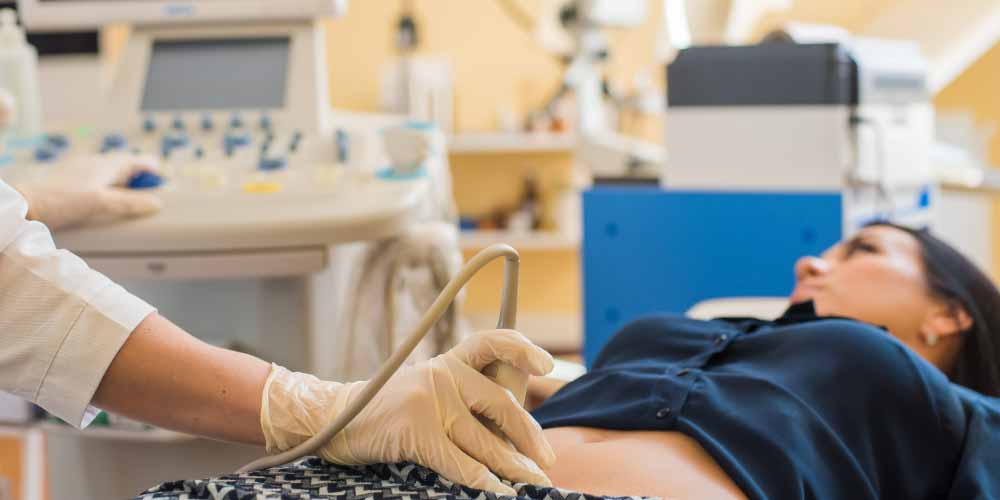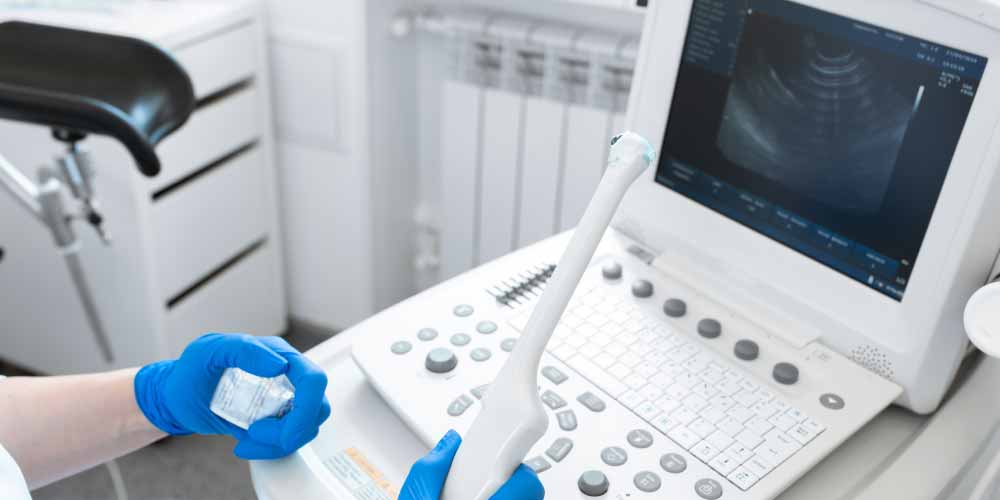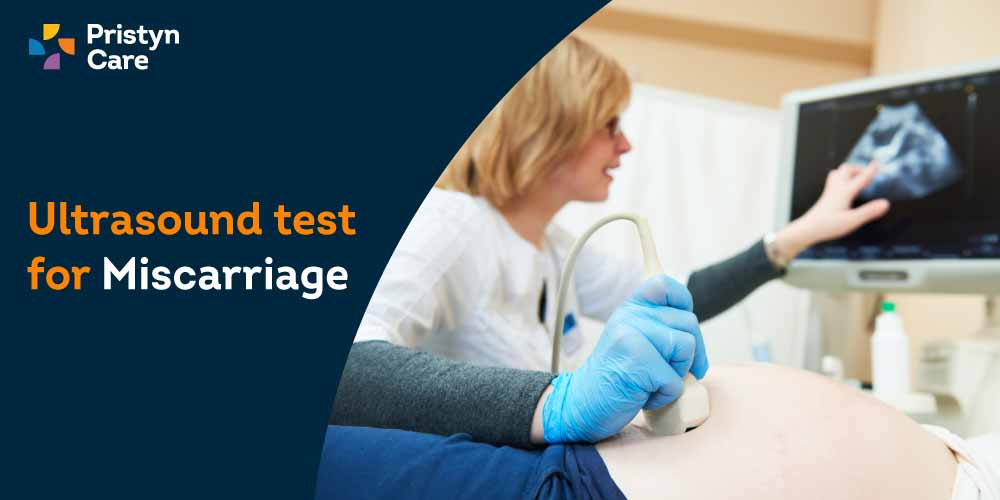![]() Views: 5,209
Views: 5,209
Ultrasound For Miscarriage or Pregnancy Loss
Miscarriage can happen for multiple reasons. To confirm whether you have a miscarriage, a doctor may suggest a few diagnostic tests. The tests can also confirm whether there’s still some pregnancy tissue left in your womb. Common diagnostic tests to detect miscarriage include an ultrasound scan, blood tests, and urine tests. This blog covers the detection of miscarriage with the help of an ultrasound scan.
Dedicated Support at Every Step!
Our Doctors are available 24 hours a day, 7 days a week to help you!
Table of Contents
How Does An Ultrasound Test Detect Miscarriage?
An ultrasound test uses high-frequency sound waves to create images of the inside of the uterus that help determine the cause of the miscarriage.
During the test, a transducer (a small handheld device) is placed on the abdomen or inserted into the vagina. The transducer sends out sound waves and picks up the echoes as they bounce back, creating a picture of the inside of the uterus on a computer screen. An ultrasound can help confirm a miscarriage by showing that the gestational sac, which contains the developing embryo, is empty or non-viable. In some cases, the test may also show that a woman has a blighted ovum, which is a type of miscarriage in which the gestational sac develops, but the embryo does not.

It's important to note that not all miscarriages can be diagnosed by ultrasound, especially in early pregnancy. The result of the test is usually interpreted by a radiologist or obstetrician who communicates the results and the next steps of treatment to the patient.
A miscarriage may appear as an empty gestational sac or a gestational sac containing a fetus without a heartbeat on an ultrasound test. It is important to note that not all miscarriages can be detected by ultrasound.
What Does An Ultrasound Result Look Like?
Most ultrasound images are typically black and white and grainy in quality. The color differences come from the differences in the densities of the material that the sound passes through.
How To Prepare For Ultrasound To Diagnose Miscarriage?
Transvaginal ultrasounds usually do not require any preparation. But during an abdominal ultrasound in early pregnancy, the doctor suggests drinking 2 to 3 glasses of water and avoiding using the bathroom for about an hour at best. Having a full bladder helps in getting clear imaging results.
No Cost EMI, Hassle-free Insurance Approval
Different Ultrasound Tests For Miscarriage in Different Trimesters of Pregnancy
There are different types of ultrasound tests that are performed to detect miscarriage according to the trimester of pregnancy. Therefore, the results of ultrasounds can vary depending on the trimester in which the test is performed.

Ultrasound Test For Miscarriage In The First Trimester:
In the first trimester, the doctor usually suggests an ultrasound or sonogram look for any complications during the pregnancy. This test helps to find out the proper growth of the embryo in the uterus. If the miscarriage occurs in the first-trimester doctor is likely to detect it by performing a sonogram.
Ultrasound Test For miscarriage In The Second Trimester:
In the second trimester, an anomaly scan is performed to assess the baby's growth, check for major structural abnormalities, and identify the position of the placenta. If a woman is having a miscarriage in the second trimester, then the doctor suggests an anomaly scan to detect it.
Ultrasound Test For Miscarriage In The Third Trimester:
A doctor recommends a growth ultrasound in the third trimester of pregnancy to assess the baby's growth and size and check for the position of the placenta. Biophysical Profile (BPP) ultrasound, performed after 32 weeks, checks the baby's well-being and movements and provides information on the amniotic fluid volume and placenta function. If a miscarriage happens in the third trimester of pregnancy (later weeks), then the gynecologist suggests a growth ultrasound to detect the miscarriage.
Also Read: Miscarriage Treatment Cost in India










